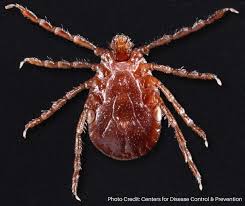Asian Longhorn Tick on Nantucket
The Asian Longhorned Tick first arrived in the US in 2017. Now they have found their way to Nantucket
2/13/20252 min read


In May 2023, the Asian longhorned tick (Haemaphysalis longicornis) was detected on Nantucket Island for the first time. Dr. Sam Telford, a professor at Tufts University's Department of Infectious Disease and Global Health, identified over 100 of these ticks across four island locations, including the Umass Field Station, the Land Bank’s Reyes Pond property, the Conservation Foundation’s Masquetuck property, and areas in Squam (Nantucket Current).
This tick species is native to East Asia and was first identified in the United States in Hunterdon County, New Jersey, in late 2017 (New Jersey Department of Agriculture). Since then, it has spread to multiple states along the Eastern Seaboard. A notable characteristic of the Asian longhorned tick is its ability to reproduce parthenogenetically, meaning females can lay eggs without mating. This allows for rapid population growth, making it a highly successful invader (USDA APHIS).
While this tick is less attracted to human skin and is not known to transmit Lyme disease, it poses significant risks to livestock. It can transmit Theileria orientalis Ikeda, a parasite that causes bovine theileriosis, leading to anemia, weakness, reduced milk production, and even death in severe cases. In heavily infested areas, cattle have been found with thousands of ticks, causing severe blood loss and serious health complications. With no effective treatment available, prevention and tick control are critical (USDA APHIS).
Although the discovery of the Asian longhorned tick on Nantucket is concerning, experts like Dr. Telford emphasize that it poses less risk to humans than other tick species already present on the island. Deer ticks (Ixodes scapularis), also known as black-legged ticks, are a major concern, as they transmit Lyme disease, babesiosis, and anaplasmosis—three serious tick-borne illnesses common on Nantucket. Lone star ticks (Amblyomma americanum), which have also been reported on the island, can cause ehrlichiosis, tularemia, and even a red meat allergy known as alpha-gal syndrome. Meanwhile, the American dog tick (Dermacentor variabilis), though less common, can spread Rocky Mountain spotted fever and cause tick paralysis. Given these risks, residents and visitors should remain vigilant, perform regular tick checks after outdoor activities, use insect repellents, and consult local health authorities for guidance on reducing tick exposure. Proper awareness and prevention measures are key to minimizing the risks posed by all tick species on Nantucket (Town of Nantucket Health Department).
